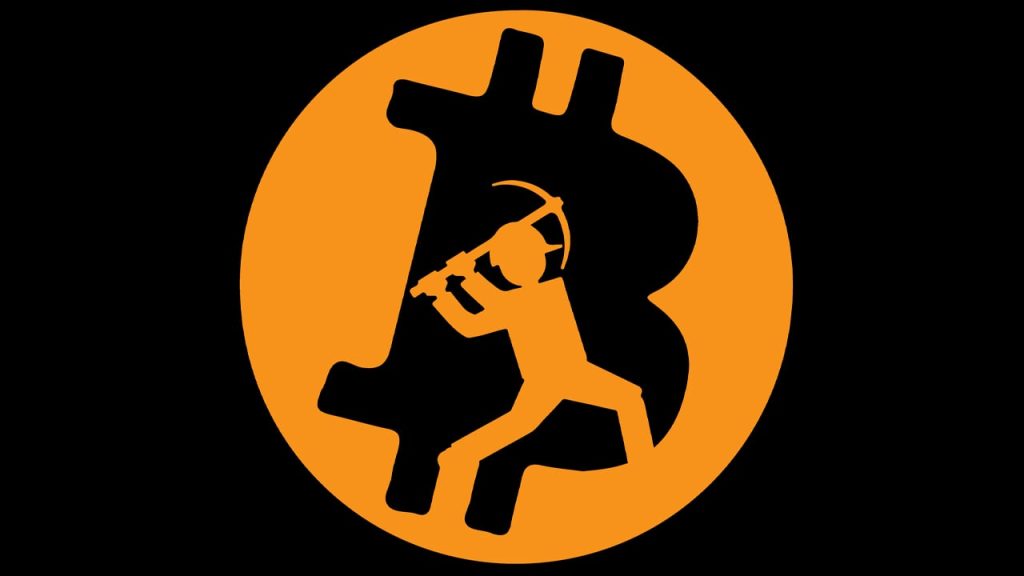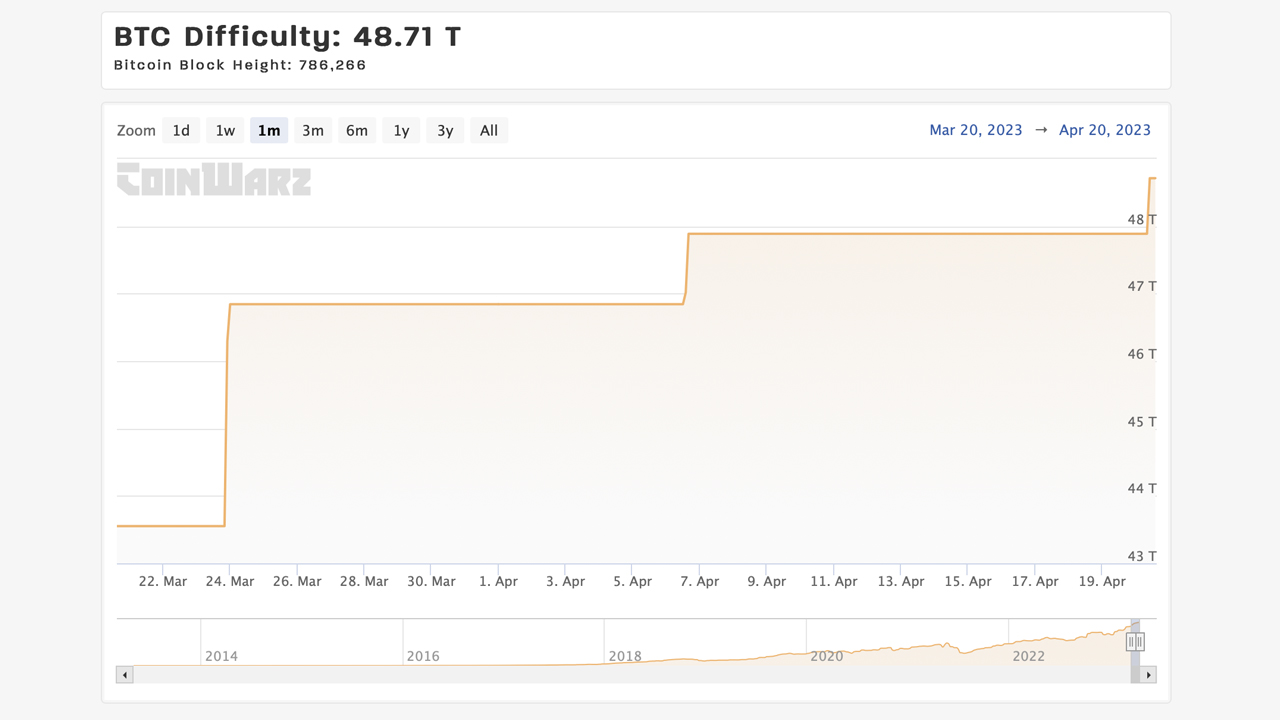Bitcoin Miners Contend With Fifth Network Difficulty Increase of 2023 – Mining Bitcoin News

Bitcoin miners are contending with the fifth network difficulty increase since February 24, 2023, following a 1.72% rise on April 20 at block height 786,240. The network’s difficulty now stands at 48.71 trillion, marking a 22.62% increase over the last 55 days since block height 778,176.
Bitcoin’s Difficulty Has Risen More Than 22% Since Block Height 778,176
In less than two months, Bitcoin’s difficulty surged by over 22% and reached an all-time high on Thursday, April 20. The current difficulty of 48.71 trillion implies an exceptionally high average hash rate necessary for mining a new block. Specifically, a miner would need an average hashrate of 48.71 trillion hashes per second to stand a chance of mining a BTC block and earning the associated rewards and transaction fees.

As of now, the network’s hashrate hovers around 352.99 exahash per second (EH/s). According to coinwarz.com data, the hashrate peaked at 440.80 EH/s on April 18 at block height 786,013. At present, with a hashrate of 352.99 EH/s, bitcoin mining pool Foundry USA dominates with 116.49 EH/s or 32.96% of the global hashrate. The top five bitcoin mining pool rankings include Antpool (79.74 EH/s), F2pool (50.82 EH/s), Binance Pool (36.74 EH/s), and Viabtc (28.93 EH/s).
In comparison to 2022, miners have had a better year in terms of BTC prices in 2023. However, BTC dipped below the $29K mark on April 20 after nearing $31K six days earlier on April 14. Over the past week, BTC has lost 3.8% in value but still holds a monthly gain of 3%. Lower BTC prices strain bitcoin miners, and the consecutive increases in difficulty don’t help either. The next anticipated difficulty adjustment for the Bitcoin network falls around May 4, 2023.
Current data indicates that block intervals have slowed beyond the average ten-minute duration, with times ranging from ten minutes and 36 seconds to eleven minutes and 23 seconds per block. Based on block intervals and existing difficulty levels, estimates predict the next adjustment could be a downward change. Currently, over 1,900 blocks remain to be discovered before the next Bitcoin network difficulty adjustment, and more than 53,000 blocks stand between now and the next halving event scheduled for around April 20, 2024.
What are your thoughts on the continuous rise in Bitcoin’s network difficulty and its impact on the mining industry? Do you think we will see more miners dropping out, or will new miners join the race to keep up with the increasing difficulty? Share your insights in the comments below.
Image Credits: Shutterstock, Pixabay, Wiki Commons
Disclaimer: This article is for informational purposes only. It is not a direct offer or solicitation of an offer to buy or sell, or a recommendation or endorsement of any products, services, or companies. Bitcoin.com does not provide investment, tax, legal, or accounting advice. Neither the company nor the author is responsible, directly or indirectly, for any damage or loss caused or alleged to be caused by or in connection with the use of or reliance on any content, goods or services mentioned in this article.













